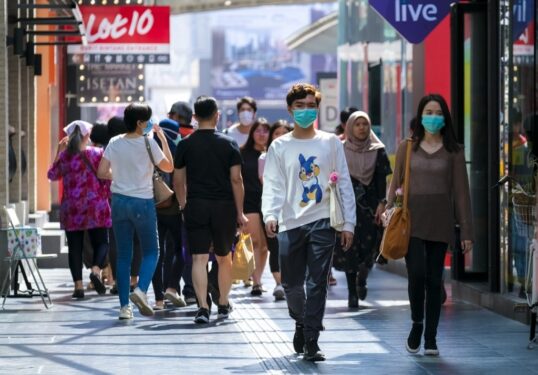NESTLÉ has laid out its plans to support and accelerate the transition to a regenerative food system – one that is targeted at protecting and restoring the environment, improving the livelihood of farmers and enhancing the wellbeing of farming communities.
Nestlé will work with its food system partners, including the company’s network of more than 500,000 farmers and 150,000 suppliers, to advance regenerative farming practices at the heart of the food system.
As part of this journey, the company will also initiate new programmes to help address the social and economic challenges of the transition.
The announcement is being made in the lead up to the UN Food Systems Summit in New York, as part of Nestlé’s contribution to help achieve the Sustainable Development Goals (SDGs) by 2030.
It also follows the recent report from the United Nations’ Intergovernmental Panel on Climate Change that shows the climate crisis is intensifying.
“We know that regenerative agriculture plays a critical role in improving soil health, restoring water cycles and increasing biodiversity for the long term,” said Nestlé chairman Paul Bulcke.
“These outcomes form the foundation of sustainable food production and, crucially, also contribute to achieving our ambitious climate targets.”
Nestlé is a signatory of the UN Business Ambition for 1.5°C pledge and was one of the first companies to share its detailed, time-bound climate plan in December 2020.
The company is taking measures to halve its emissions by 2030 and achieve net zero by 2050.
Meanwhile, Nestlé is investing CHF 1.2 bil over the next five years to spark regenerative agriculture across the company’s supply chain using three primary levers to help farmers adopt regenerative practices:
Apply state-of-the-art science and technology, provide technical assistance
Leveraging its vast network of R&D experts and agronomists, Nestlé is, for example, developing higher-yielding coffee and cocoa varieties with lower environmental impact and assessing novel solutions to reduce emissions in the dairy supply chain.
Nestlé will also offer agricultural training and help farmers exchange information and best practices that can be adapted locally.
Offer investment support
The transition to regenerative agriculture comes with initial risks and new costs. Nestlé will support farmers by co-investing with them, facilitating lending or helping them obtain loans for specific equipment.
The company will also work with partners to fund pilot projects to test and learn how best to advance regenerative agriculture.
Pay premiums for regenerative agriculture goods
Nestlé will offer premiums for many raw materials produced using regenerative agriculture practices and buy bigger quantities.
This means rewarding farmers not only for the quantity and quality of ingredients, but also for the benefits they provide to the environment through soil protection, water management and carbon sequestration.
Closer to home, Nestlé (Malaysia) Berhad CEO Juan Aranols revealed that the company had, from 2011 to 2020, planted one million native trees in Sabah under project RiLeaf to further scale up efforts in restoring riparian zones and forest ecosystems along Sabah’s Kinabatangan river.
“And now we are embarked on a journey to plant a further three million trees in the next three years under Project RELeaf, both in Sabah and in Peninsular Malaysia.
“Our reforestation efforts complement our adoption of sustainable agricultural practices through our direct engagement in chilli farms in Kelantan, and rice and coffee planting in Kedah.
“Through these ventures we have introduced practices such as intercropping and mulching with the use of paddy straws that rejuvenate the soil, retain its moist and have a positive impact on the yield and the farmers income.
“As we embark on this inspiring journey, we look forward to scaling up these efforts directly and also by partnering with likeminded stakeholders, especially those in our extensive network of local raw material suppliers.” he added. – Sept 16, 2021.









